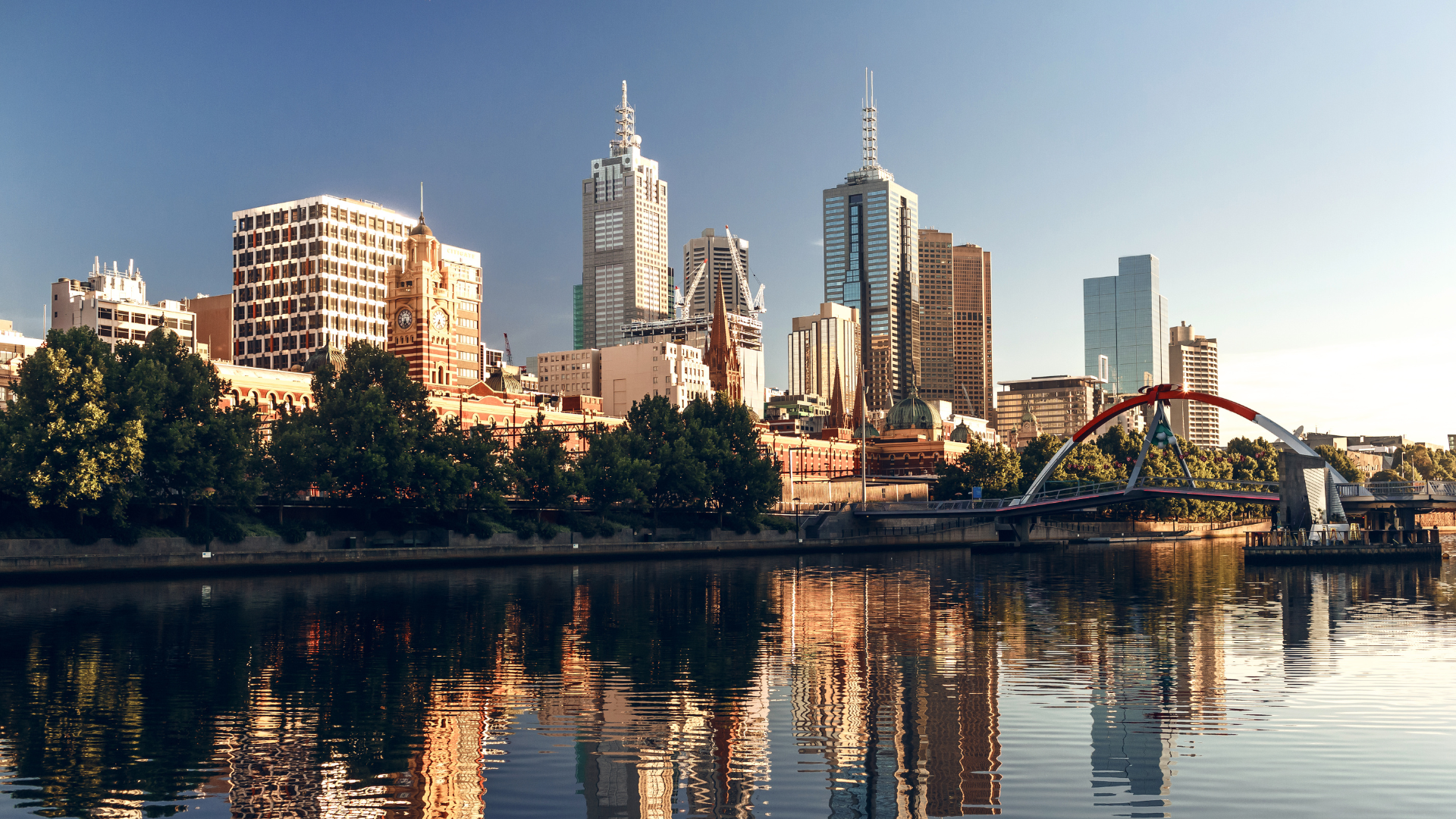Safe Conversations – Part four
An interview with Kieran Condron, Managing Director of ActivateRail
Part four of our National Safe Work Month conversations is with Kieran Condron, Managing Director of ActivateRail. Over the past 14 years, Kieran has been working across infrastructure maintenance and projects in the rail industry, servicing the heavy rail and mining industries of Australia’s Eastern states. In early 2018, he was appointed Managing Director of ActivateRail, a dedicated rail interface solutions business, established from Sterling Group’s Specialist Rail Project Services Team. ActivateRail is designed to offer government and private companies whole-of-project solutions to facilitate and manage the delivery of major Australian rail projects. Kieran leads a dynamic team working across many of the key rail projects in Victoria, including the Melbourne Metro Rail Project, Level Crossing Removal Projects, Regional Rail Revival Program as well as infrastructure maintenance and renewals programs.
See below as Kieran shares his thoughts on National Safe Work Month and its importance.
Tell us about National Safe Work Month – what it is?
It’s a month-long program that calls out safety for the industry, it asks employers and employees and industry alike about the work that we do, ensuring it’s top of mind for everyone and refresher to consider all work activities.
Has it been effective? Has it refreshed people’s minds?
I think there’s been good aspects for National Safe Work Month in regard to public relations, with specific initiatives that bring it to the forefront, but has there been focus for the entire month? Not sure, I think we could always do more. There’s been other initiatives this month in my industry that I feel do more to call out the focus of the whole month.
What have you liked seeing during the month?
Actually, what you guys are doing has been great! I’ve seen the interviews that you’ve done to call out this initiative for the industry and I’ve enjoyed reading what my peers and others have said and spoken about, it’s a really good initiative. I know that one of our key clients – Metro Trains, they do an industry engaging breakfast, which gets the industry talking, they are a big player and a big buyer of services and they’ve got a huge ability to influence, so, it’s good to see them taking those opportunities.
Anything you haven’t liked
Specifically over the month, I think, while these initiatives are good to bring safety to the forefront, a bug bear of mine is that people tend to concentrate on the tiny things and not necessarily looking at bigger picture or understand how safety is used as a catalyst/excuse to drive other agendas. For example; sending multiple groups of staff out to supervise a dead track that hasn’t had trains running on it for years and years, wastes resources and skilled staff. It happens far too often, all because of a rule written somewhere, a long time ago. That’s an example of safety going too far.
Should we then be adopting a common-sense mentality?
I believe that safety mentalities are heading too far towards compliance, rather than the intent of what they are there to achieve. I actually did some fatigue management and awareness training and it highlighted that good fatigue management is more than just compliance. I think as an industry, we can get away with saying that we manage fatigue because we are giving people their 10-hour break. Whereas the job of managing fatigue is so much broader than that. We should look at what else is going on in that individual’s life so that they actually have a good break. What else are they doing leading up to the shift pattern you as an organisation are providing them? You can have as many rules as you like for compliance, but the actual intent is to look after the individual.
So, is fatigue one of your biggest challenges?
Yes, absolutely, especially as it’s a 24/7 industry. Often it is just about the fatigue of our field workers, ensuring they’ve got enough breaks etc., which is spot on. But, there’s a whole lot of burnout that also happens in the back office, as they are the ones thinking about the people in the field. If you’re not supporting the managers and operational staff well, then you’ll inadvertently run into issues of fatigue management in the field too.
With fatigue in the industry – is it now seen as a something that needs to be managed or is it still a man-up culture?
I think it’s come a long way in a short time, I’ve been in this industry for 15 years, and definitely during the first half of my career it was man-up and get the job done, the second latter half, the focus has shifted. Now there’s an awareness and appreciation for how important that safety is and that’s driven by good culture.
Has a greater focus on safety increased or decreased productivity?
Yes, I think it has increased productivity. You lose a whole lot of productivity when you’ve got tired, cranky people and potentially people dying to/from work or on the job site because of fatigue. I would definitely hope looking after fatigue is a key risk factor for businesses and should be thought of positively.
What’s ActivateRail been doing to promote National Safe Work Month?
Within the month of October - there is also RUOK 10/10 day and a couple of other rail specific initiatives. We led initiatives to increase awareness for those campaigns, including hosting a staff luncheon that was very effective. This was a really powerful session with staff sharing experiences of when they have struggled with their mental health and very valuable for both the organisation and myself, as a leader. We have some of those stories (work and non-work related) now on posters around the workplace for our people to reflect on and digest. That was one of the more powerful things we’ve done relating to safety and mental health.
In Episode 3, Kelvin said OHS exists not only in work but extends to the home as well. Does your business provide a family feel where there is a support network for them?
Absolutely, we’ve always tried to run a business that feels more of a family than a business. You don’t always get it right and I think we still have a way to go, specifically for our operations and management staff who support 24-hour operations. We are now concentrating on the burden this places on people taking phone calls 24/7, because they cannot switch off – and you need to be productive and happy in your workplace as well as in your private life. We are looking to improve internal practices, so that our leaders and operational staff are getting the break they need and switch off mentally.
Do you feel that smart phones have stopped people from being able to switch off?
It has, I have personally now switched off notifications for emails, they are still there, but I need to actively go into app. There’s always another email or something to read.
I know others who have switched emails off between 5PM Friday night and 6AM Monday morning – maybe that’s the next step for me. I have decided to lead from the front, and I have recommended turning off email notifications to all my staff as well.
With all the infrastructure work going on across Australia, are you concerned that the supply of skilled HSE professionals will not match the demand and there will be an increase in accidents?
Whether its HSE, or any skilled worker within infrastructure space, there isn’t enough. We could be staring down the barrel of something pretty catastrophic if we do not have enough competent people. I know that there is a skills shortage and safety professionals play a key role in ensuring that competent people are doing the work. Currently there aren’t enough people and training people is hard, particularly finding good trainers and providing the right training, is proving difficult. It shouldn’t be a box ticking exercise.
Training can be seen as; “If you don’t have the skills, I’ll put you on a day course so you can do the job”. Before you know it, people who don’t have true competency are doing work that is putting themselves and others at risk.
Who’s going to lead the charge for innovation?
I think it’s a joint effort between industry, contractors like ourselves, rule-makers and the big players like MTM and VLine. We need to recognise the need for change and that we need to be doing it smarter. We need to start paving the way through rule book change.
To finish, anything else important about safety.
There isn’t enough work being done on replacing people with technology in dangerous situations for rail track protection. The industry has grown such a demand for it, that it is outstripping the capable labour supply. But the rules haven’t changed for 40 years to enable things to be done smarter, safer and faster, we are too slow. We need to be looking at technology – to get people out of harm’s way.
Compliance is a must, but so is common sense. We need to be raising people and professionals in this space to recognise the difference – when compliance is necessary and when it goes too far.
The effort it takes to create a compliant business could be redirected to create a better safety culture. I believe there are businesses that might not have every policy, process and procedure, but excellent safety cultures; with workers who know they are protected, owners that care about them and don’t put them in harm’s way.
One thing that I think businesses could be doing better – is advocating the importance of safety culture not just compliance.





